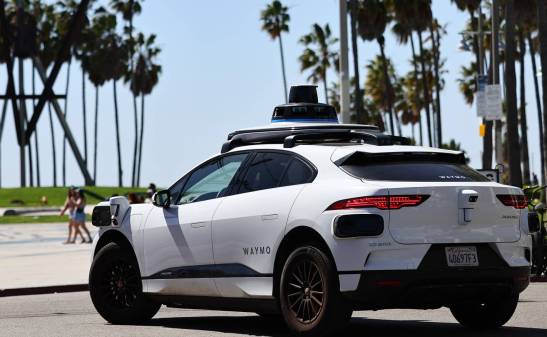Autonomous vehicles bill finds obstacles in the Senate

After easy passage through the House, a sweeping piece of legislation that would allow up to 80,000 autonomous vehicles on the road is finding some resistance in the Senate.
The legislation would bestow the U.S. Department of Transportation with the authority to set safety standards on vehicles designed for operation without a driver and reinforce states’ rights to enforce local vehicle registration and traffic laws. After House passage, it was touted as one of the first legal mechanisms for supporting an emerging industry that could bring new jobs and commerce to the U.S. The Hill reports, though, that details surrounding cybersecurity, privacy, safety, and the exclusion of the trucking industry have temporarily stalled a bill that senators were “hotlining” for fast action.
Exemptions created by the legislation would allow up to 80,000 autonomous vehicles to be sold by manufacturers within 12 months. Democratic Sen. Gary Peters of Michigan, one of the bill’s co-authors, says it’s a bipartisan “framework” to support the autonomous vehicle industry. Since the bill’s introduction, Peters promoted the idea of legislation that does not favor one automaker over another, has cybersecurity as a “top priority” and ultimately makes roads safer.
But some of the bill’s provisions regarding safety, cybersecurity and privacy have prompted Democratic Sens. Ed Markey of Massachusetts and Richard Blumenthal of Connecticut to suggest further amendments.
Consumer groups have pointed out that the bill, called the AV START Act, contains broad language that might also give automakers the option to avoid including safety features like airbags.
Like the House version of the bill, the Senate legislation does not have provisions for the trucking industry. Republican Sen. James Inhofe of Oklahoma told The Hill he pushed to include a trucking provision, but also said he is not one of the lawmakers blocking the bill.
Advocates of a trucking provision are looking to provide further support for companies like the Uber-owned Otto that are already testing the technology along Ohio’s Smart Mobility Corridor, and lend a new tool to a prodigious industry that the American Trucking Associations (ATA) trade group calls “the lifeblood” of the American economy.
Others say that the potential negative influence on the jobs market should be studied more closely before allowing what could be a huge disruption to economy. About 70 percent of the nation’s freight is moved by trucks and the industry supports about 8 million American jobs, according to the ATA. A general trend in automation could force as much as a third of the American workforce to search new lines of employment by 2030, according to a study published in November by consultancy McKinsey & Company. While it’s expected that the jobs market would eventually adjust and workers would find new careers, some research shows a rapid transition would be a hardship for many Americans.
While senators have not been able to come to an immediate consensus, the AV Start Act remains in the Senate’s hotline process, according to the Hill. It’s possible they could tweak the measure in the coming weeks and send it over to the House for a quick vote before it goes to President Donald Trump’s desk.






